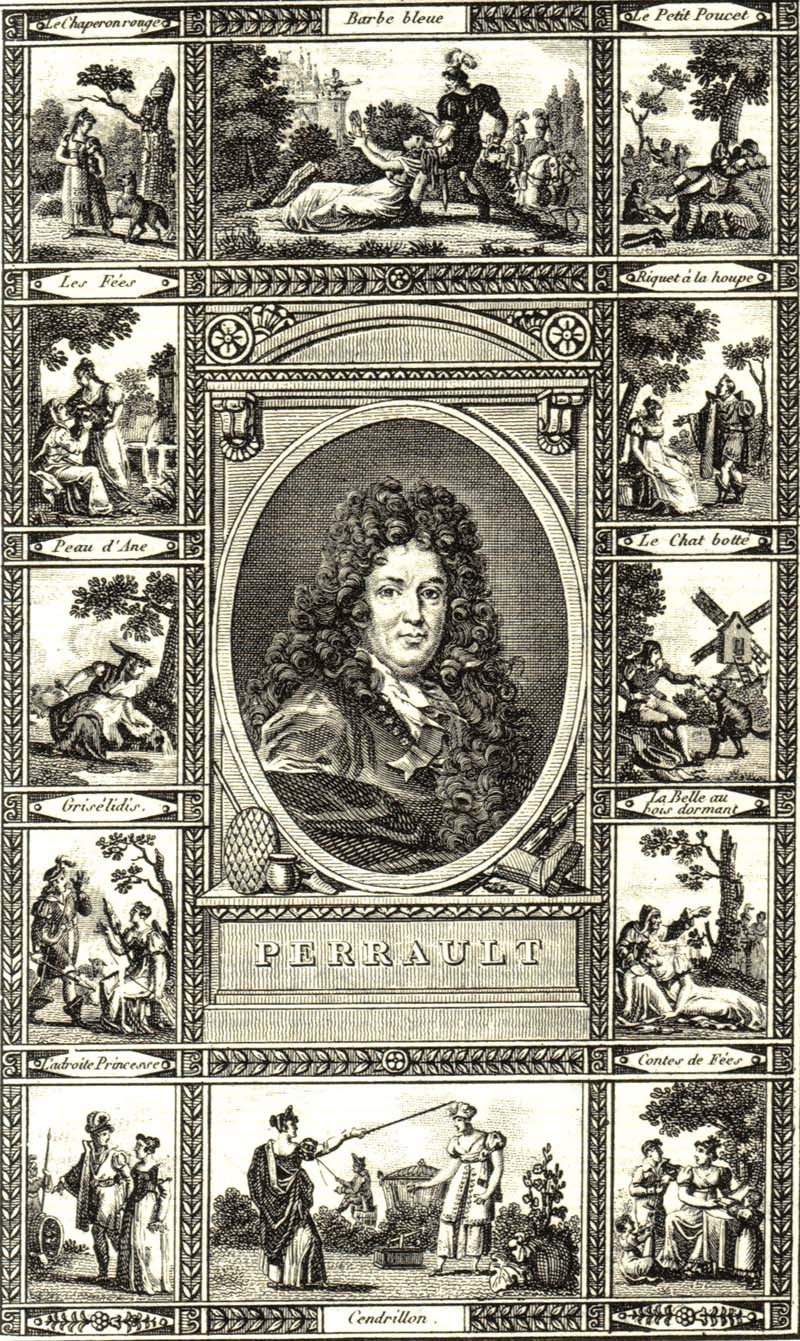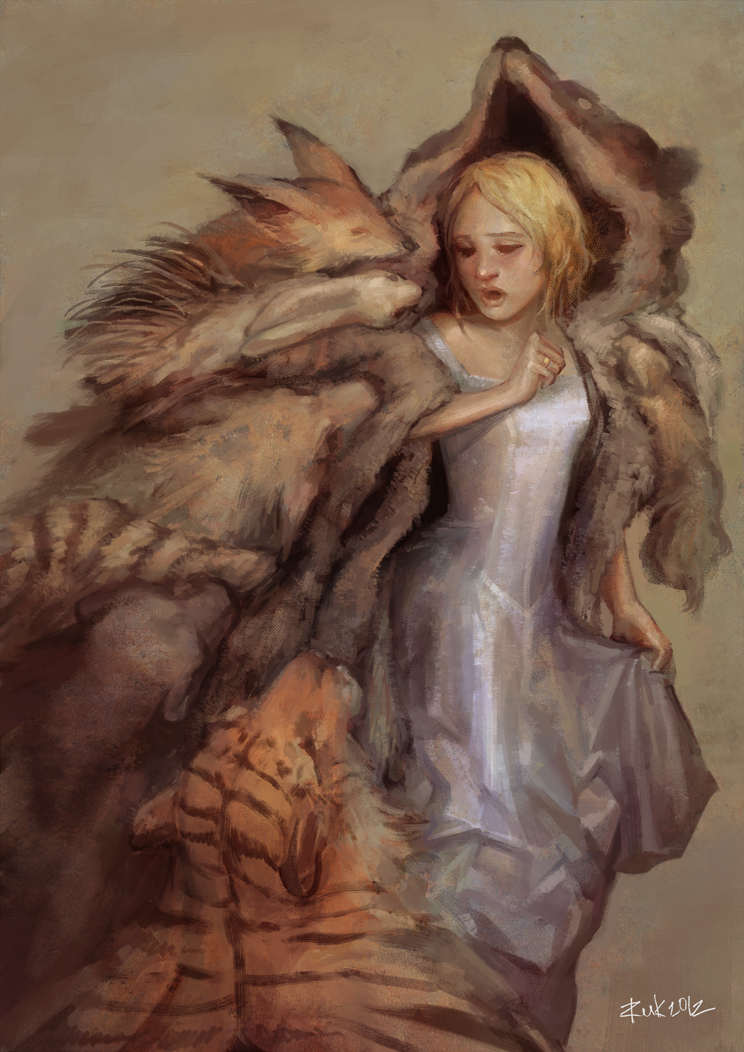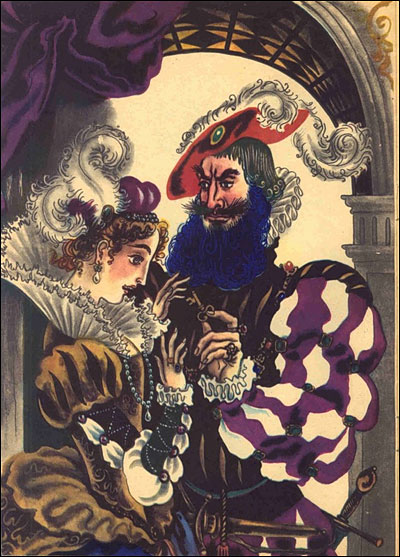Marina Warner thinks that Perrault's story contains thinly veiled sarcasm and should not be taken seriously; it's true that he was a feminist for his time and a friend and associate with many female fairy tale writers of his time. Maria Tatar thinks he may have given random and contradictory morals just to prove how foolish it is to try and find deeper meaning in fairy tales.
Yet many people who later retold the story seemed to take the moral completely seriously, despite the fact that the story's events contradict the condemnation of the woman (Bluebeard is always punished and the wife lives happily). Cautioning women against curiosity was a big theme in the Victorian era, and even through the 20th century (anyone remember the episode of Dick Van Dyke where they purposely trick Laura into opening a package meant for Rob, and she is humiliated when the boat expands in her living room?)
Unfortunately, Fairy Tales Framed doesn't include anything directly written about "Bluebeard", but includes his own words about his Mother Goose tales and another fairy tale collection that included Donkeyskin-which will shed light on how he thought about all of his tales. In both of those instances, he spends the vast majority of his arguments defending the validity of fairy tales, simply because they had beneficial morals. He compares his stories to ancient myths and fables, and even claims that his morals are superior because they make sense (he claims that "Cupid and Psyche" has no discernible meaning).
rcmtrue, "Allerleiruah"
For example, regarding "Donkeyskin", Perrault wrote that "It is not hard to discern that the goal of this tale is to help children learn that it is better to risk the most severe punishment than to fail to do their duty; that virtue may be thwarted, but it is always rewarded."
Perrault's tale Griselda is a very preachy tale about the need for a wife to humbly obey her husband in all things, even when he is clearly at fault. When the Prince of the tale decides to marry another girl and send his wife back to her parents, she responds with "You are my husband, lord, and master. And whatever else you may hear, you must remember that nothing is nearer my heart than to obey you completely." Seriously, the whole story is like this, it's a very uncomfortable read. It's actually possibly the most sexist fairy tale I've ever read and makes our discussion of how females tend to be more passive overall look like nothing in comparison.
Yet Perrault did not see the cruel husband as needing to change, but the tale concludes with " Indeed, the people even praised the prince's cruelties because they had produced so remarkable a proof of Griselda's constancy that people saw in her a model for women everywhere in the world." He later wrote that the story "tends to influence women to put up with their husbands and to make them see that there is nothing so brutal or strange that the patience of an honest woman cannot bring to an end."
It's really hard to say what Perrault's true intent was. Scholars tend to think he couldn't have meant his words literally, and it's true that many fairy tales were disguised criticism of royalty. Yet I don't really find Perrault's tone to be that "tongue-in-cheek." He may have been defending the publication of fairy tales in general, which was a hot debate at the time, but to all appearances he was literally preaching complete and total obedience of wives to their husbands, no matter how degrading or cruel, in multiple tales.
Russian children's book illustration from Soviet Era-(can't find illustrator name, at least not in English)
And it really begs the question, why do scholars feel the need to defend Perrault's intentions? I admit I don't know much at all about French culture at the time other than what I've read in fairy tale books, but I kind of find it hard to believe that he was really just writing for shock value when it seems everyone at the time and for hundreds of years afterwards took him literally.







You have to take to mind that different languages have a different kind of sarcasm, and in translation it can be lost very easily. He could have been sarcastic about it. I'd like to know what popular opinion about him was around the time his tales were new.
ReplyDeleteBut I can understand seeing his tales as twisted in a way. I never liked that Giselida story.
I don't think we should put anyone on a pedestal of "perfection", no matter what generation they were from. Even Charles Dickens had some problems, but we still enjoy his stories.
Scholars probably feel the need to defend Perrault because he was an important figure in terms of the existence of fairy tales, and perhaps more people would respect him if they thought better of him. *shrugs*
You're definitely right about sarcasm and nuances being lost in translation, which is part of the reason I could buy that his "morals" were tongue in cheek and not meant to be taken seriously. But after reading his letters and forwards and afterwards, it seemed a lot more like he was being completely serious-of course, to a 21st century female with little knowledge of France at the time.
DeleteI actually have another post coming out today on the same subject and would be interested to hear what you think! And I'm impressed you already knew the Griselda tale, I hadn't heard of it before, it's certainly not included in most collections of Perrault's fairy tales!
Re scholars defending Perrault: don't you think it's ironic though, that the same scholars who write off Perrault's scenes of truly degrading women and defending abusive husbands, will rail on Disney's Princesses, who while they might not be the *most* forward examples of empowered women, are much less sexist?
I only knew about the story because I looked online for a list of all his tales and realized he actually hadn't collected very many, compared to other collectors.
DeleteI think maybe it's because we're much more likely to bash something new and popular today than something from many years ago. We value history and want others to value it too.
I'm definitely all for valuing history, but it almost seems like in this instance people idealize Perrault-they certainly don't feel the need to idealize the Grimms any more, people actually seem anxious to "expose" their practices of collecting and altering tales. But I don't think I've ever read anyone discussing/critiquing Griselda, which is an interesting omission
DeletePeople will be people. :P
DeleteI know when I first found out about the Grimm's deception, I felt really betrayed about it since these are tales I already really liked.
I don't know how popular Griselda was when it first came out.
I commented on the follow-up post to this post but I wanted to point out that Perrault had no control over how people interpreted his work. And to make the point that such EXTREME writing is the hallmark of satire. It is meant to be grotesque to highlight the very wrongness of the situation. Perrault knew his contemporary audience--an audience that overall believed in the subjugation and obedience of women--and his tale of Bluebeard with its ending proving that the heroine was ultimately SMART and SAFE to practice curiosity. The moral is a tweak at the audience that believes that women are all Pandoras and should be tightly controlled. Bluebeard tales in general celebrate women's curiosity and I wish I had addressed that more when I compiled my Bluebeard book. My appreciation for Perrault's tale and the many variants has only grown in the years since then.
ReplyDeleteAs for Griselda, just the point made that it is the worst, most derogatory to women story written says it all. The very extremity of it puts it up as satire. That's very nature of satire--so many readers don't have the understanding to get it. Satire is the tool of the intellectual who are writing, sharing and reading in context of a specific period of time. Imagine people a hundred years from now reading The Onion articles and believing we THOUGHT that way. Ditto all the people who encounter A Modest Proposal outside of a classroom or helpful introduction and think Swift really thought cannibalism of children was a way to end famine in Ireland. Seems ridiculous but a lot of people have really believed that because the writing is so very serious and sincere in tone. Satire is not for anyone with too literal a brain or a misunderstanding of context.
And I'll add that publishers and history have perpetuated the issue by reprinting Griselda out of context. It's not a picture book story for children. It was for adults and had a very specific message which is confused when it is packaged as a children's story because Perrault wrote it. Shel Silverstein wrote for children and is the idol of many but the stuff he wrote for Playboy shouldn't be made into a picture book.
ReplyDelete